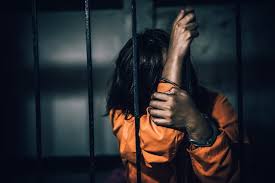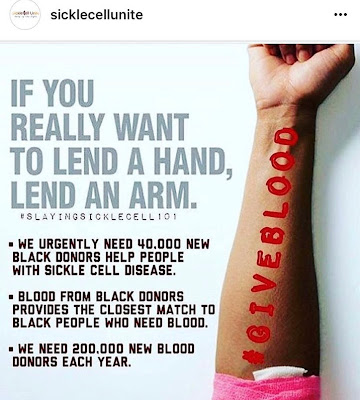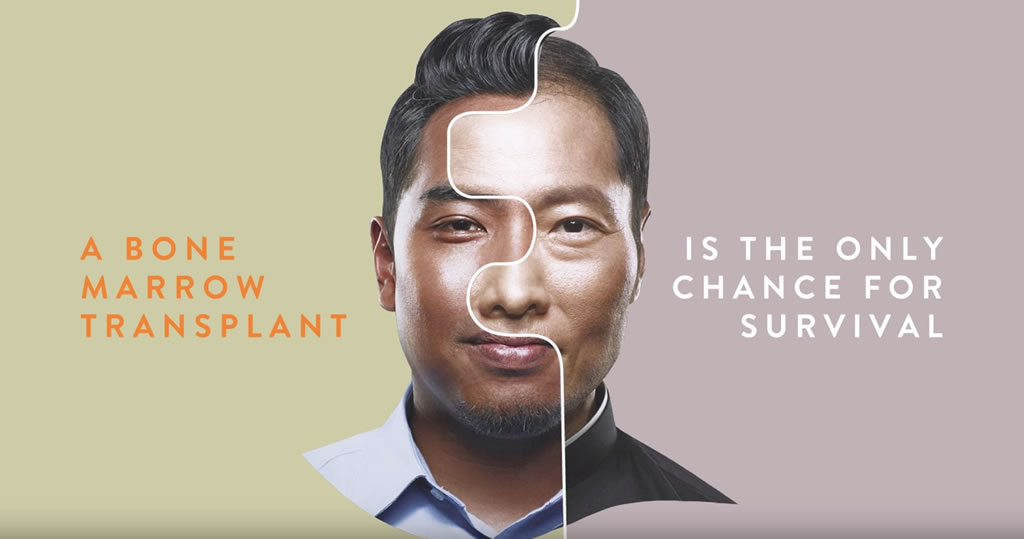 |
| Woman in Pain by Wojciech Babski |
I tOO used to think we shouldn’t solely state that BLACK LIVES MATTER ( BLM ) but that ALL LIVES MATTER. But then George Floyd...
A video surfaced revealing the “arrest” of George Floyd begging for his life, begging for air, Calling Out to His Mother as he was held twisted and dying. After watching the horrific video of George Floyd’s arrest I was shocked, disgusted and afraid. I now understood that though ALL LIVES MATTER, It’s BLACK LIVES THAT ARE AT STAKE and so it’s BLACK LIVES that MATTER. From slavery till today, African Americans have and continue to be negatively treated, marginalized and killed. Systemic racism, the center of it all, is alive and strong. It’s unspoken of and unaddressed but ingrained in the DNA of the American society.
Well, the continued shootings of Black Men, Black Women, our Black Children scream aloud seeking attention that there’s still so much wrong with how we treat those that look different from ourselves. No one’s been listening. A black man had to die in such an atrocious way for people to finally hear, come together and make a stand against the brutality Black Men endure within the hands of the police. If there was no video that captured what happened. Where would we still be today? The American society would still be unaware and unchanged. Except for those in the black community who experience it everyday.
The video helped America to see in vivid detail what many have been blind to or refused to see. Though there have been videos that have existed showing similar fates. This one captured the eyes, ears and hearts of the Nation ( 🇺🇸 ) and the World. ALL LIVES, yeah, but America had yet to put any importance on the Black community, BLACK LIVES. Saying BLACK LIVES MATTER is a statement, A CRY OUT that indeed BLACK LIVES do MATTER !!
In the Sickle Cell Community many black lives are lost. Although, in almost every listed top 10 disease in America for some reason, it’s Blacks that are proportionally affected so much more than any other demographic. With Sickle Cell Disease many of us take up the personal mantle and become Advocates who spread the word on Sickle Cell (what it is, who it affects, and how you get it).
Racism (systemic racism) which thousands have banded together to protest, let’s not dismiss it, has a very big stronghold in the medical field. I hesitated in writing this piece because I thought, maybe this isn’t the time to bring to light this specific issue. I hesitated because so many healthcare workers (doctors and nurses) have been working extremely hard to tackle the pandemic that has taken over the world. Doctors and nurses have put themselves on the front-line and many are even dying of COVID-19 as they contract the virus from the very patients they care for.
But wait, that’s what starts it. You hesitate and say “at a better time,” “later,” or “not now.” But then no such time comes.
I first want to say, I give my heart to all the front-line workers, especially the doctors and nurses charged with taking care of COVID-19 patients. The sacrifice it takes to put oneself in harms way in order to care for people is simply beautiful and courageous. And I know that a large number of medical staff have lost their lives in an effort to help tame this pandemic. What they are all doing, there is no one else who can and so they’ve worked and worked. Overworked, overstretched, tired, scared, and mentally drained these doctors and nurses still go to work the very next day despite the large number of lost lives they witnessed the day before. I Salute You All !!
I am truly grateful for all of their hard work and fighting spirit. When I go to the hospital in this pandemic I too have witnessed their spirit and am so thankful for what they’re doing. However, none of these take away from the fact that systemic racism takes place in the medical field. The few times I’ve brought it to hospital staffs attention. It was either blown off, not taken seriously or filed away someplace never to be seen again.
But the truth is we shouldn’t talk about Black Lives Matter without talking about Sickle Cell Anemia, one of the diseases which affect more African-Americans than any other ethnic group. Sickle Cell Anemia is a blood disease that predominantly affects those of African American descent. In the United States, Sickle Cell Disease occurs in 1:500 African-Americans (Southwestern Comprehensive Sickle Cell Center, 2007). Sickle Cell Disease occurs in many other races and ethnicities, also. Sickle Cell Disease occurs in 1:58,000 Caucasians, 1:1,100 Hispanics (eastern states), 1:32,000 Hispanics (western states), 1:11,500 Asians, and 1:2,700 Native Americans. About 1:12 African Americans carry the Sickle Cell Trait.
(source: txhealthsteps.com)
The numbers are clear on how it affects more Black Persons than any other group. As a result, I’ve learned that Sickle Cell sufferers aren’t given the same considerations, assistance or Trust as those who suffer from others illnesses. One illness for example, Cancer. Now Cancer is a predominantly “White” disease of which much attention, research and education is dedicated. When a Cancer patient says they are in pain they are more likely to be believed than doubted. They are also more likely to be given the necessary treatments that are needed with no question about the pain they are going through. With Sickle Cell Disease many myths, biases and prejudices exist. These prejudices go mostly unaddressed even when they are spoken up about.
The stigma that goes along with being a Sickle Cell sufferer is astounding. I know b/c I’ve experienced those prejudices. I’ve been face-to-face with the racism and negative attitudes that many Doctors and Nurses have.

Not so recently I was overcome with pain from my head all the way through my body, my bones, to my legs. It was as though I could feel each sickled cell that flowed through my veins. As I was laying in the ambulance grabbing and massaging my body as best as I could (though it merely soothed me than ease the pain). All I could do was count the minutes and seconds till we finally arrived at the hospital - emergency room. When we arrive and after triage, the struggle begins to get me treated. It takes some time and after many tries to get a vein. Once we do, I can then get the pain medicine that can help ease my agonizing pain. The doctor, after three rounds of of treatment sees how the pain medicine took effect. After sharing that it only took the edge of my pain, the doctor decides to admit me.
I get to the floor about 3am or so. The journey I now have to take involves a revolving door of nurses who try to get a better vein so that I can get all the medication that I need and possible transfusion if necessary. It takes hours with three nurses trying to find a vein. Two on one arm and one on the other. They stick and prod with four tourniquets on my arms so my veins pop up. They stick me with needles about five or six times. However, it’s to no avail. So the doctor now has to bring in a sonogram machine to guide him into gaining access to a vein.
He looks at the site on my arm he’s found with the sonogram and injects into my skin. Soon after, he looks away at the screen in front of him and begins moving the needle around in order to find the vein and gain access, which he finally does!! I exclaimed in joy and thanked the doctor. I’m joyful because I finally get to begin the treatment I need (PCA) that can help to stabilize my crises.
PCA or Patient-Controlled Analgesia, as defined by the National Cancer Institute (NCI) Dictionary of Cancer terms is: a method of pain relief in which the patient controls the amount of pain medicine that is used. When pain relief is needed, the person can receive a preset dose of pain medicine by pressing a button on a computerized pump that is connected to a small tube in the body.
I write in such detail so you can then understand how I feel when after all of that and only after a few days of treatment. A doctor from Hematology-Oncology comes to my room without even examining me and declares that my levels are stable and I will be discharged the next day. To educate you all, when it comes to sickle cell anemia, though one’s levels may stabilize does not mean that the patient is not in pain. Again, Blood levels do not equal ( = ) the amount of pain one is in !!! So I shared with the doctor exactly that.
Well, that seems to have been a mistake because the doctor went off on me yelling, asking me if I’m telling him what to do. If I’m a doctor? Do you think I don’t know that? I’ve been a doctor for 30 years and you’re telling me?! I tried to appease him and explain that I was only reiterating the fact that though my blood counts are fine I myself am not and I continue to be in extreme pain. But the doctor so matter of factly said that I look comfortable and don’t look like I am in pain at all. So no matter how much I cry out how much pain I’m in, the doctor has already long ago made up his mind about the state of my body. But the last straw was when he began by saying that I was on too high of a dosage of pain meds at home. I reminded him that it is my doctor that prescribed that dosage. Which I’ve been on for years. This doctor then told me it is because I am a drug addict. That if I wasn’t, then there would be no need for such a high dose of meds.

I was completely and utterly flabbergasted. It took me a while to collect my thoughts. But then I understood. His racial prejudices are what summed up his treatment of me. After he left I laid there dismayed and shocked about how free he felt to be so blunt and in my face he felt he could be with his racist behavior. No matter what I said he wouldn’t listen. He took away the PCA treatment I was receiving and knowing how my pain gets worse at nighttime I wept in my bed scared of what the night may bring. What scared me even more was knowing I would be sent home with the amount of pain I was still enduring.
I felt trapped with nowhere to go and with no one who could help. So I went home and tried managing my pain as best as I could with the meds I had. However, none of it was enough and I ended up having to call for help. This time when the ambulance came I asked for a different hospital and we were off. But as we were on our way I was so anxious and worried. Would this time be any different? I’ll have to once again go through the sea of needles.
The above was just one example of the racism and prejudices we encounter as sickle cell sufferers. Nurses are the first faces we see when going to the hospital and many times they are no different. I’ve had nurses search my personal belongings (my purse) because they believe I’ve brought drugs to the floor.
What are we left with if we don’t comply? Especially when we’ve gone through all the injections and sticking (to get blood). If we don’t comply, I’ve been told I wouldn’t receive any pain medication or they’ll refuse to treat me. Many times I don’t feel as though I’m even treated as a human being. But where else are we to go? Who else is there that can help us? That’s is why many blogs and social media like my own exist.
All these fears cripple me at times when I’m in my bedroom in pain contemplating whether or not I should go to the hospital. It pushes me to endure more and push off going so I don’t have to possibly experience such things. But yes, racism exists everywhere and though doctors and nurses are “supposed” to help us. They are people. People comprised with their own beliefs and sometimes prejudices. But unless a video comes out or a recording exposing such things, I doubt that much attention will be paid. I just pray that another form of George Floyd won’t have to take place for actions against racism toward Black Persons who fall ill and are left in the vulnerable hands of such doctors.
























